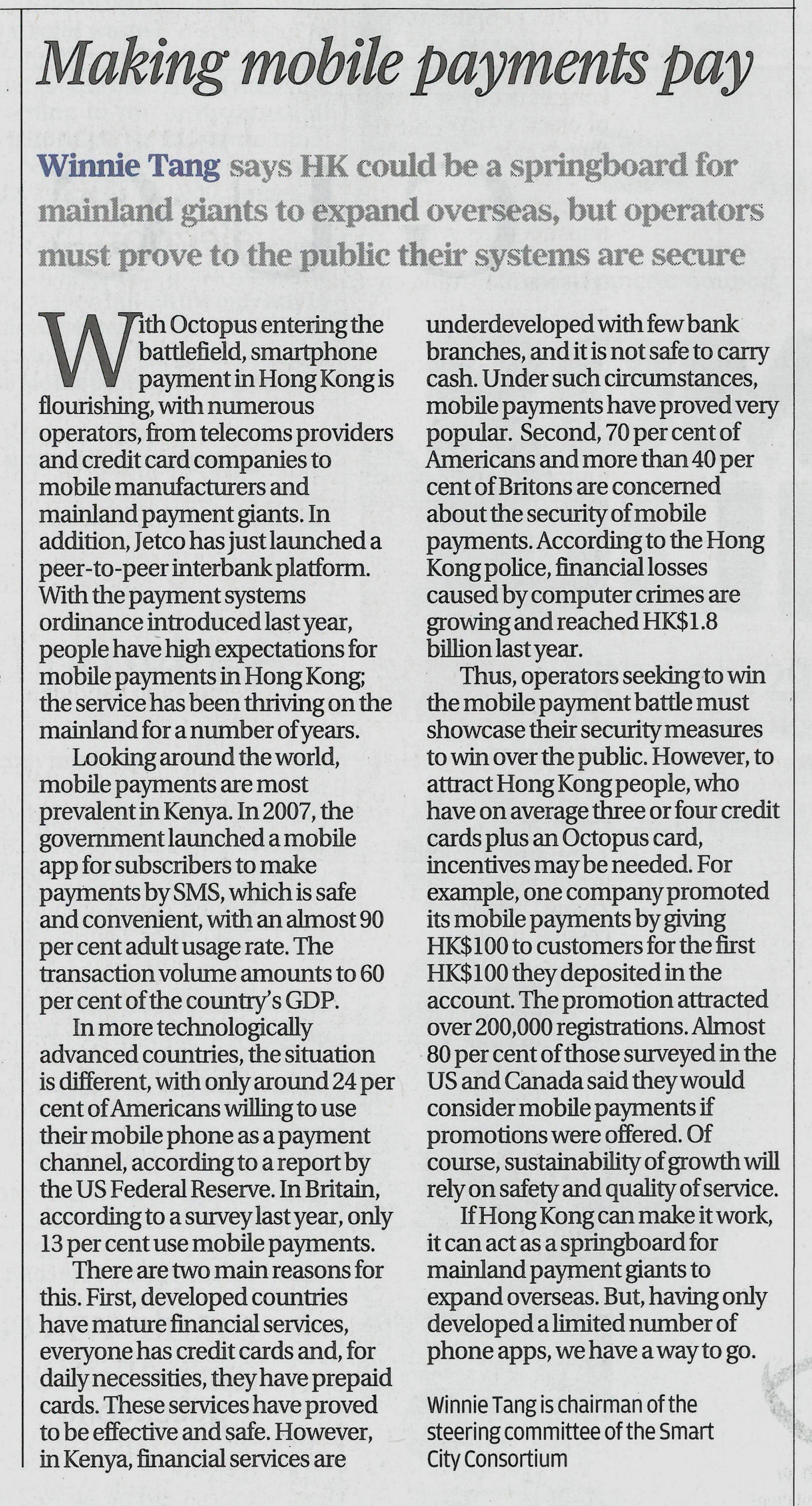網上版請按此

Making mobile payments pay
Winnie Tang says HK could be a springboard for mainland giants to expand overseas, but operators must prove to the public their systems are secure
With Octopus entering the battlefield, smartphone payment in Hong Kong is flourishing, with numerous operators, from telecoms providers and credit card companies to mobile manufacturers and mainland payment giants. In addition, Jetco has just launched a peer-to-peer interbank platform. With the payment systems ordinance introduced last year, people have high expectations for mobile payments in Hong Kong; the service has been thriving on the mainland for a number of years.
Looking around the world, mobile payments are most prevalent in Kenya. In 2007, the government launched a mobile app for subscribers to make payments by SMS, which is safe and convenient, with an almost 90 per cent adult usage rate. The transaction volume amounts to 60 per cent of the country’s GDP.
In more technologically advanced countries, the situation is different, with only around 24 per cent of Americans willing to use their mobile phone as a payment channel, according to a report by the US Federal Reserve. In Britain, according to a survey last year, only 13 per cent use mobile payments.
There are two main reasons for this. First, developed countries have mature financial services, everyone has credit cards and, for daily necessities, they have prepaid cards. These services have proved to be effective and safe. However, in Kenya, financial services are underdeveloped with few bank branches, and it is not safe to carry cash. Under such circumstances, mobile payments have proved very popular.
Second, 70 per cent of Americans and more than 40 per cent of Britons are concerned about the security of mobile payments. According to the Hong Kong police, financial losses caused by computer crimes are growing and reached HK$1.8 billion last year.
Thus, operators seeking to win the mobile payment battle must showcase their security measures to win over the public. However, to attract Hong Kong people, who have on average three or four credit cards plus an Octopus card, incentives may be needed. For example, one company promoted its mobile payments by giving HK$100 to customers for the first HK$100 they deposited in the account. The promotion attracted over 200,000 registrations. Almost 80 per cent of those surveyed in the US and Canada said they would consider mobile payments if promotions were offered. Of course, sustainability of growth will rely on safety and quality of service.
If Hong Kong can make it work, it can act as a springboard for mainland payment giants to expand overseas. But, having only just developed a limited number of smartphone apps, we still have a way to go.
Dr. Winnie Tang
Chairman of the steering committee of the Smart City Consortium